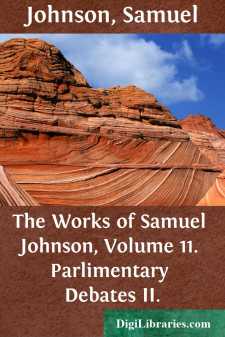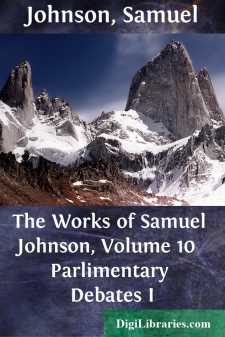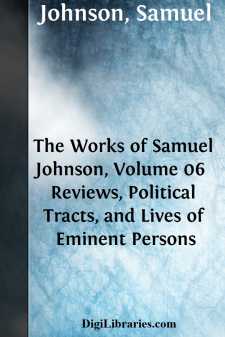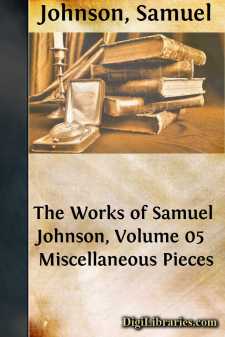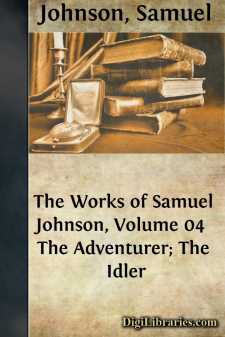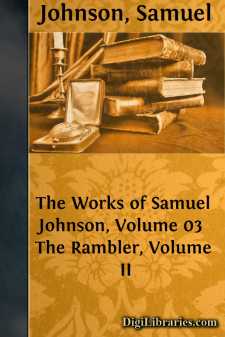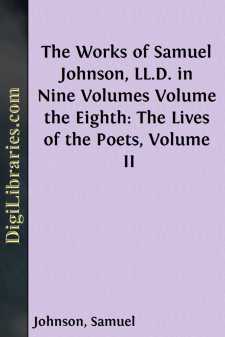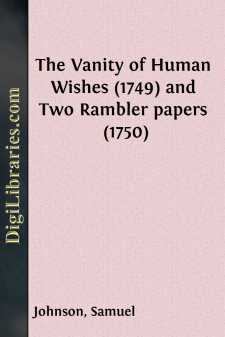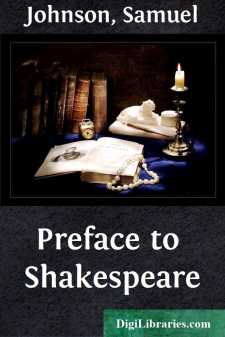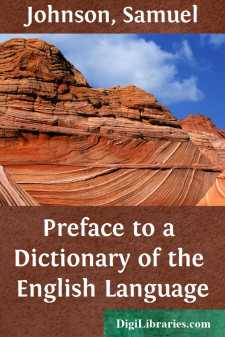Categories
- Antiques & Collectibles 13
- Architecture 36
- Art 48
- Bibles 22
- Biography & Autobiography 813
- Body, Mind & Spirit 142
- Business & Economics 28
- Children's Books 17
- Children's Fiction 14
- Computers 4
- Cooking 94
- Crafts & Hobbies 4
- Drama 346
- Education 46
- Family & Relationships 57
- Fiction 11829
- Games 19
- Gardening 17
- Health & Fitness 34
- History 1377
- House & Home 1
- Humor 147
- Juvenile Fiction 1873
- Juvenile Nonfiction 202
- Language Arts & Disciplines 88
- Law 16
- Literary Collections 686
- Literary Criticism 179
- Mathematics 13
- Medical 41
- Music 40
- Nature 179
- Non-Classifiable 1768
- Performing Arts 7
- Periodicals 1453
- Philosophy 64
- Photography 2
- Poetry 896
- Political Science 203
- Psychology 42
- Reference 154
- Religion 513
- Science 126
- Self-Help 84
- Social Science 81
- Sports & Recreation 34
- Study Aids 3
- Technology & Engineering 59
- Transportation 23
- Travel 463
- True Crime 29
Samuel Johnson
Samuel Johnson (1709–1784) was an English writer, poet, and lexicographer best known for his influential work, "A Dictionary of the English Language," published in 1755. His contributions to literature also include essays, criticism, and the famous biography "The Life of Samuel Johnson" by James Boswell, which offers a detailed and vivid portrayal of his life and character. Johnson's profound impact on English literature and language endures, marking him as one of the most significant figures of the 18th century.
Author's Books:
Sort by:
by:
Samuel Johnson
IN PARLIAMENT.HOUSE OF COMMONS, DECEMBER 8, 1741.DEBATE ON THE ADDRESS.The commons who attended in the house of lords, having heard his majesty's speech to both houses, returned to their own house, where a copy of it being this day read to them by the speaker, Mr. H.A. HERBERT moved for an address, in words to this effect: Sir, to address the throne on the present occasion, is a custom which, as...
more...
by:
Samuel Johnson
PREFATORY OBSERVATIONS TO THE PARLIAMENTARY DEBATES. The government of this country has long and justly been considered the best among the nations of Europe; and the English people have ever evinced a proportionate desire for information in its proceedings. But in the earlier days of our constitution, we shall find that much jealousy on the part of our rulers debarred the people from access to the...
more...
by:
Samuel Johnson
REVIEWS. LETTER ON DU HALDE'S HISTORY OF CHINA, 1738. There are few nations in the world more talked of, or less known, than the Chinese. The confused and imperfect account which travellers have given of their grandeur, their sciences, and their policy, have, hitherto, excited admiration, but have not been sufficient to satisfy even a superficial curiosity. I, therefore, return you my thanks...
more...
by:
Samuel Johnson
MY LORD, When first I undertook to write an English Dictionary, I had no expectation of any higher patronage than that of the proprietors of the copy, nor prospect of any other advantage than the price of my labour. I knew that the work in which I engaged is generally considered as drudgery for the blind, as the proper toil of artless industry; a task that requires neither the light of learning, nor...
more...
by:
Samuel Johnson
THE ADVENTURER. No. 34. SATURDAY, MARCH 3, 1753. Has toties optata exegit gloria pænas. Juv. Sat. x. 187. Such fate pursues the votaries of praise. TO THE ADVENTURER. SIR, Fleet Prison, Feb. 24. To a benevolent disposition, every state of life will afford some opportunities of contributing to the welfare of mankind. Opulence and splendour are enabled to dispel the cloud of adversity, to dry up the...
more...
by:
Samuel Johnson
THE RAMBLER. No. 106. SATURDAY, MARCH 23, 1751. Opinionum commenta delet dies, naturæ judicia Confirmat. CICERO, vi. Att. 1. Time obliterates the fictions of opinion, and confirms the decisions of nature. It is necessary to the success of flattery, that it be accommodated to particular circumstances or characters, and enter the heart on that side where the passions stand ready to receive...
more...
by:
Samuel Johnson
PRIOR. Matthew Prior is one of those that have burst out from an obscure original to great eminence. He was born July 21, 1664, according to some, at Winburn, in Dorsetshire, of I know not what parents; others say, that he was the son of a joiner of London: he was, perhaps, willing enough to leave his birth unsettled, in hope, like Don Quixote, that the historian of his actions might find him some...
more...
by:
Samuel Johnson
INTRODUCTION The pieces reproduced in this little volume are now beginning to bid for notice from their third century of readers. At the time they were written, although Johnson had already done enough miscellaneous literary work to fill several substantial volumes, his name, far from identifying an "Age", was virtually unknown to the general public. The Vanity of Human Wishes was the first of...
more...
by:
Samuel Johnson
PREFACE TO SHAKESPEARE That praises are without reason lavished on the dead, and that the honours due only to excellence are paid to antiquity, is a complaint likely to be always continued by those, who, being able to add nothing to truth, hope for eminence from the heresies of paradox; or those, who, being forced by disappointment upon consolatory expedients, are willing to hope from posterity what...
more...
by:
Samuel Johnson
It is the fate of those who toil at the lower employments of life, to be rather driven by the fear of evil, than attracted by the prospect of good; to be exposed to censure, without hope of praise; to be disgraced by miscarriage, or punished for neglect, where success would have been without applause, and diligence without reward. Among these unhappy mortals is the writer of dictionaries; whom mankind...
more...


